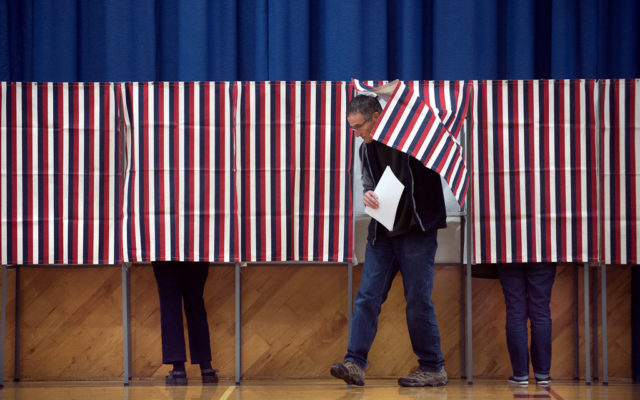
Maine voters overwhelmingly pass $120M in transportation, broadband borrowing
Maine voters on Tuesday, July 14 overwhelmingly backed $120 million in bonds for transportation and broadband systems that have been stressed by the coronavirus pandemic.
A $105 million bond to be largely spent on capital projects for roads and bridges passed with 78.7 percent of votes on Tuesday. A $15 million measure for broadband expansion in unserved and underserved areas was approved with 74.4 percent of votes. The Bangor Daily News and its partner, Decision Desk HQ, called both races at 9:36 p.m. with 12.7 percent of precincts reporting.
It is the sixth straight year that the state has passed a similar bond for a transportation system reliant on borrowing. Both policy areas have been the subject of long-term funding debates that have gone nowhere of late in Augusta.
A commission that aimed to solve an annual $232 million transportation shortfall deadlocked over a floated gas tax increase in February, while Democrats and Republicans have not agreed on a spending strategy to increase broadband access.
The spending could take on increased meaning amid the coronavirus. A decline in highway travel caused gas tax losses that drove an estimated $80 million loss on top of the normal shortfall. The surge in Mainers who have had to work and learn from home has raised attention to internet speeds that are fifth-slowest among states, according to Broadband Now.
That bond is a small step toward reaching the state broadband authority’s goal of connecting 95 percent of the state to high-speed internet within five years. Broadband is an expensive utility that requires buy-in from local partners over vast reaches of rural territory in Maine.
The transportation bond will draw down $275 million in matching federal and other funds, while the broadband will leverage $30 million in matching funds. The bond money will be used to plug the current transportation shortfall, while the broadband money will be administered as grants to expand access in mostly rural areas.